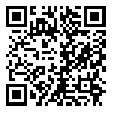This Day in Unitarian Universalist History October 11
Basel, Switzerland
1564 – The anti-Trinitarian Martin Cellarius died in Basel, Switzerland, at the age of 65. Considered the first self-proclaimed Unitarian, he was imprisoned in Germany for his beliefs. Cellarius is the author of several biblical and philosophical works, and he influenced both the Polish and the Transylvanian Unitarian movements.
The post October 11 first appeared on Harvard Square Library.
Read more at: www.HarvardSquareLibrary.org – the digital library of Unitarian Universalism.

